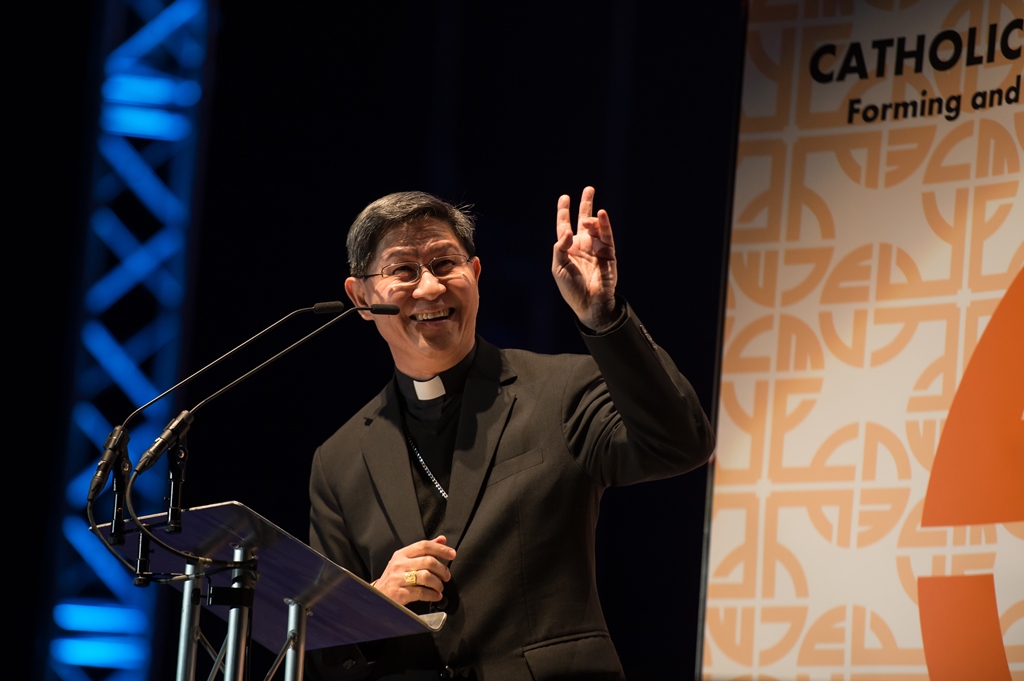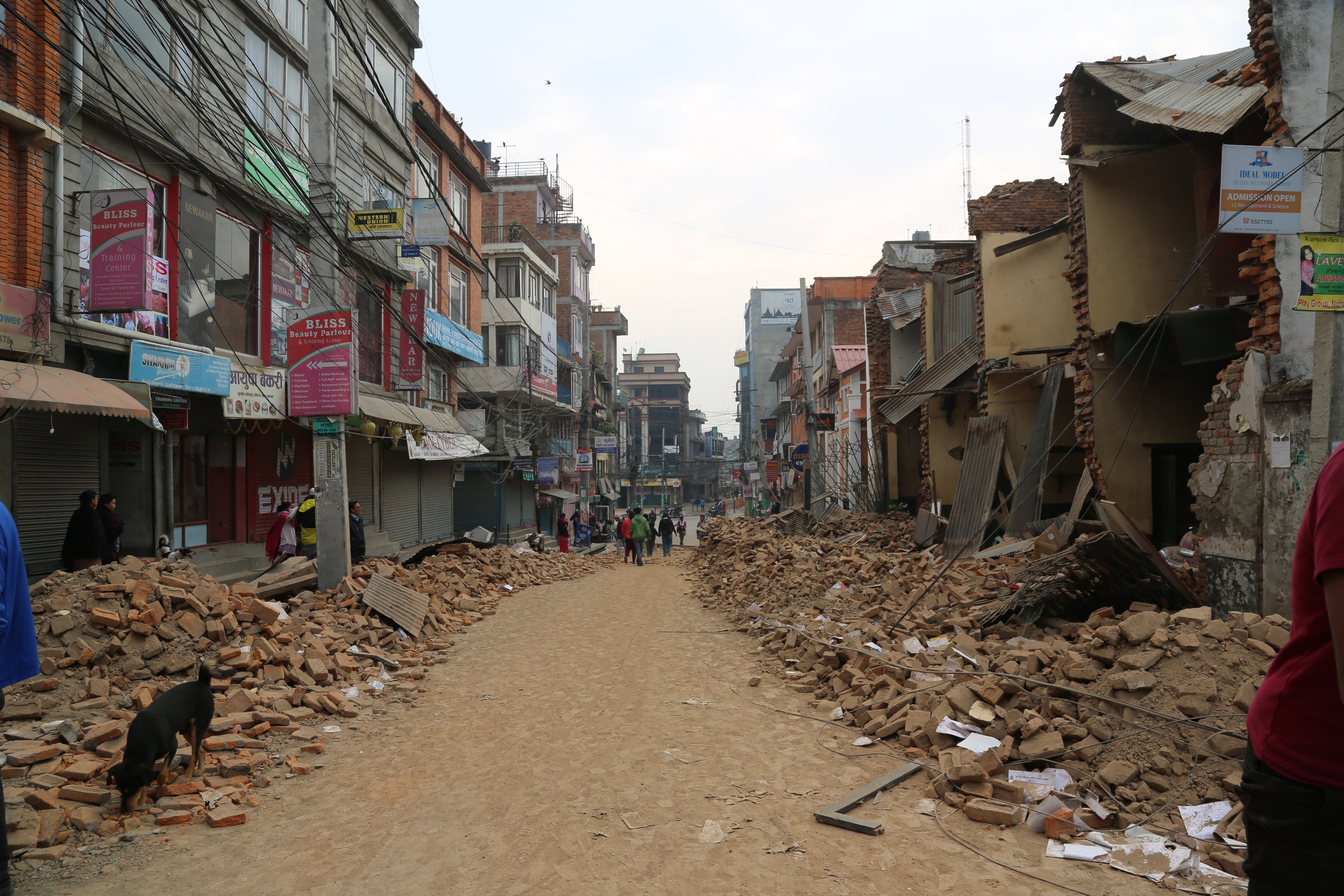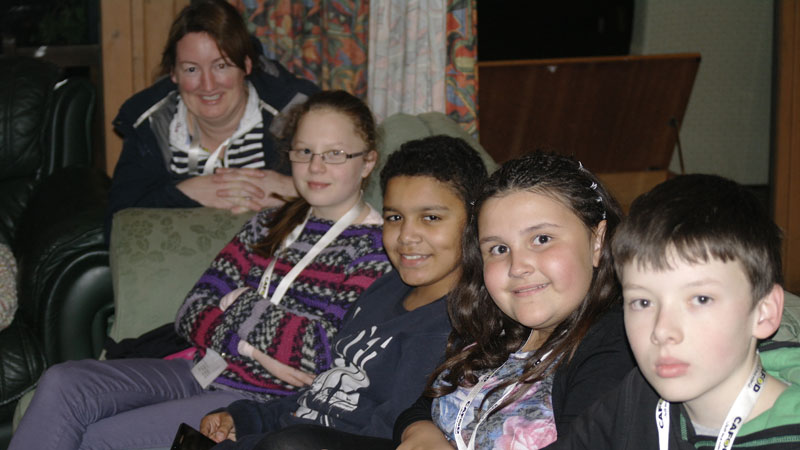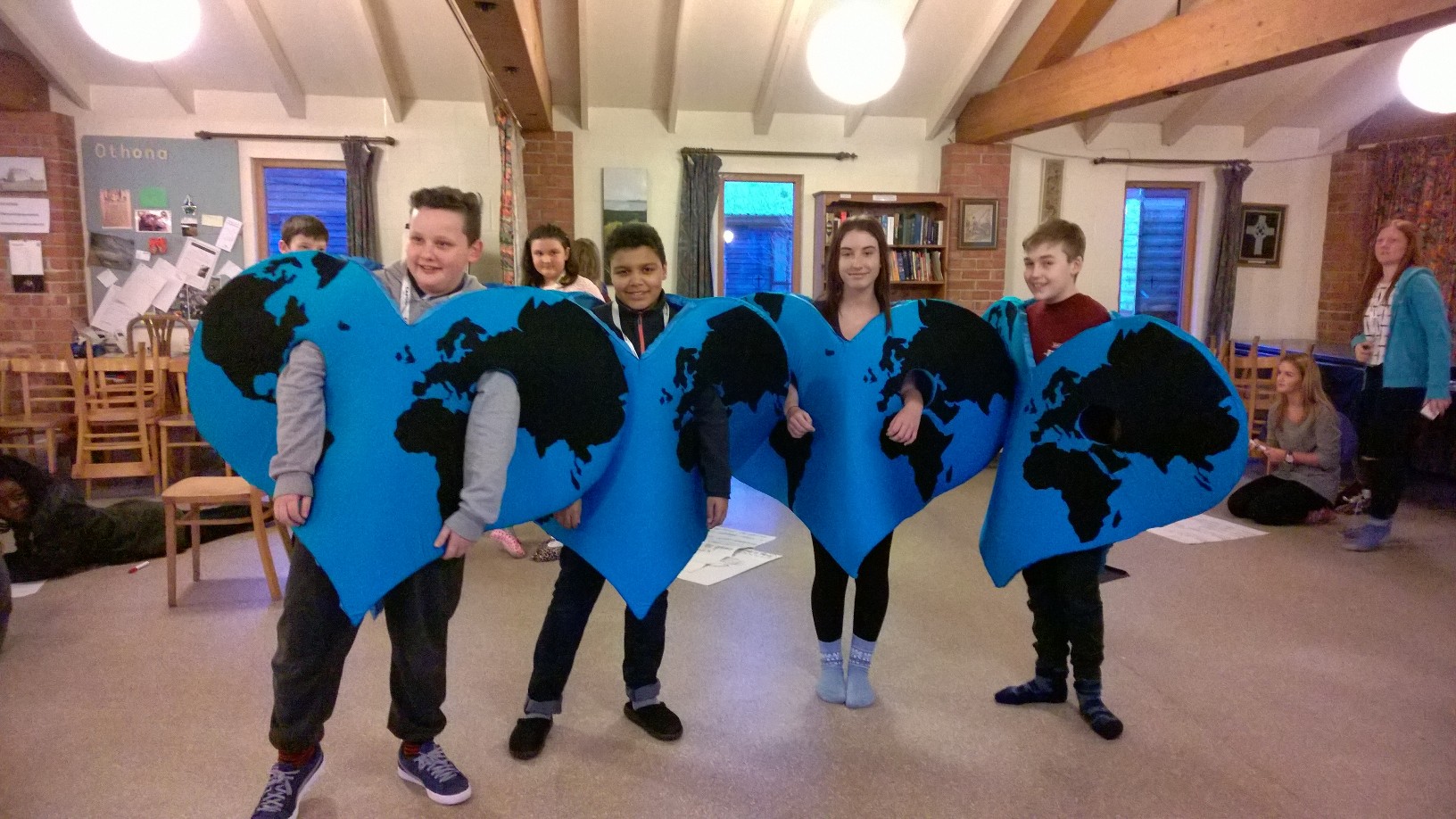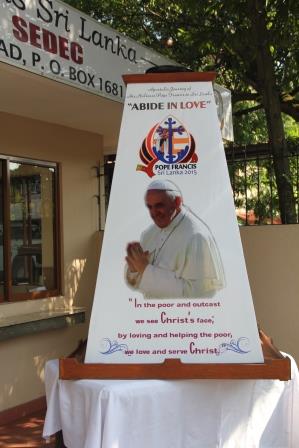My reflections of Rebuilding Justice, London
July 17, 2015
Caroline Grogan works in CAFOD’s Campaigns team. She recently met Fr Edu, a Goldman Environmental Prize winning activist who works for NASSA (Caritas Philippines).
I had never heard a priest and social and environmental activist speak before, so I was privileged to hear CAFOD partner Fr Edu at the Rebuilding Justice Event in London on Saturday. He was there to thank CAFOD supporters for their generous donations that helped people post-Typhoon Haiyan. He spoke about the widespread poverty across the country, where communities are made vulnerable to the effects of extreme weather and a changing climate.
Sign our climate change petition and ask David Cameron to take action to tackle climate change.
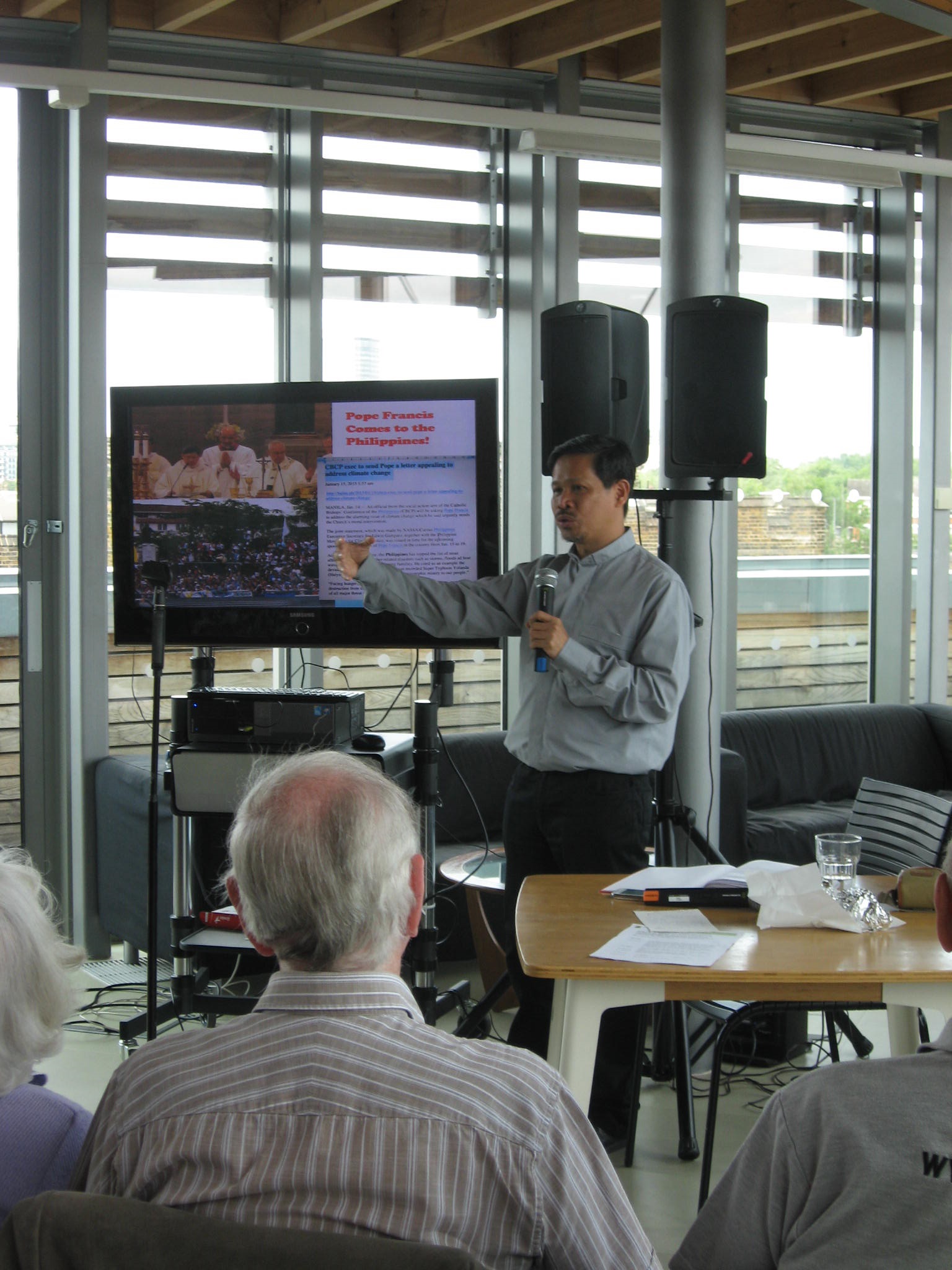
Accidental activist
Fr Edu became an environmental activist “by accident” when he stood up for the indigenous Mangyan community he was serving in Mindoro island. “Defending our land is a necessity,” he said, and standing in solidarity with people being forced off their land is imperative.
Fr Edu currently serves indigenous communities in a highland region of the Philippines. I was moved by his description of Filipino resilience as a a strong force which was “enabled by our faith. He is excited by Pope Francis’ ground-breaking encyclical on which he says asks us to put our “faith into action”.
It was extremely inspiring to hear about how he is motivated by love for God’s creation. Fr Edu reminded us that the organisation he leads – Caritas Philippines – means love. Fr Edu expressed this love in these words, “We should never sacrifice people and the environment for short-term benefit of the few.” Continue reading “My reflections of Rebuilding Justice, London”
